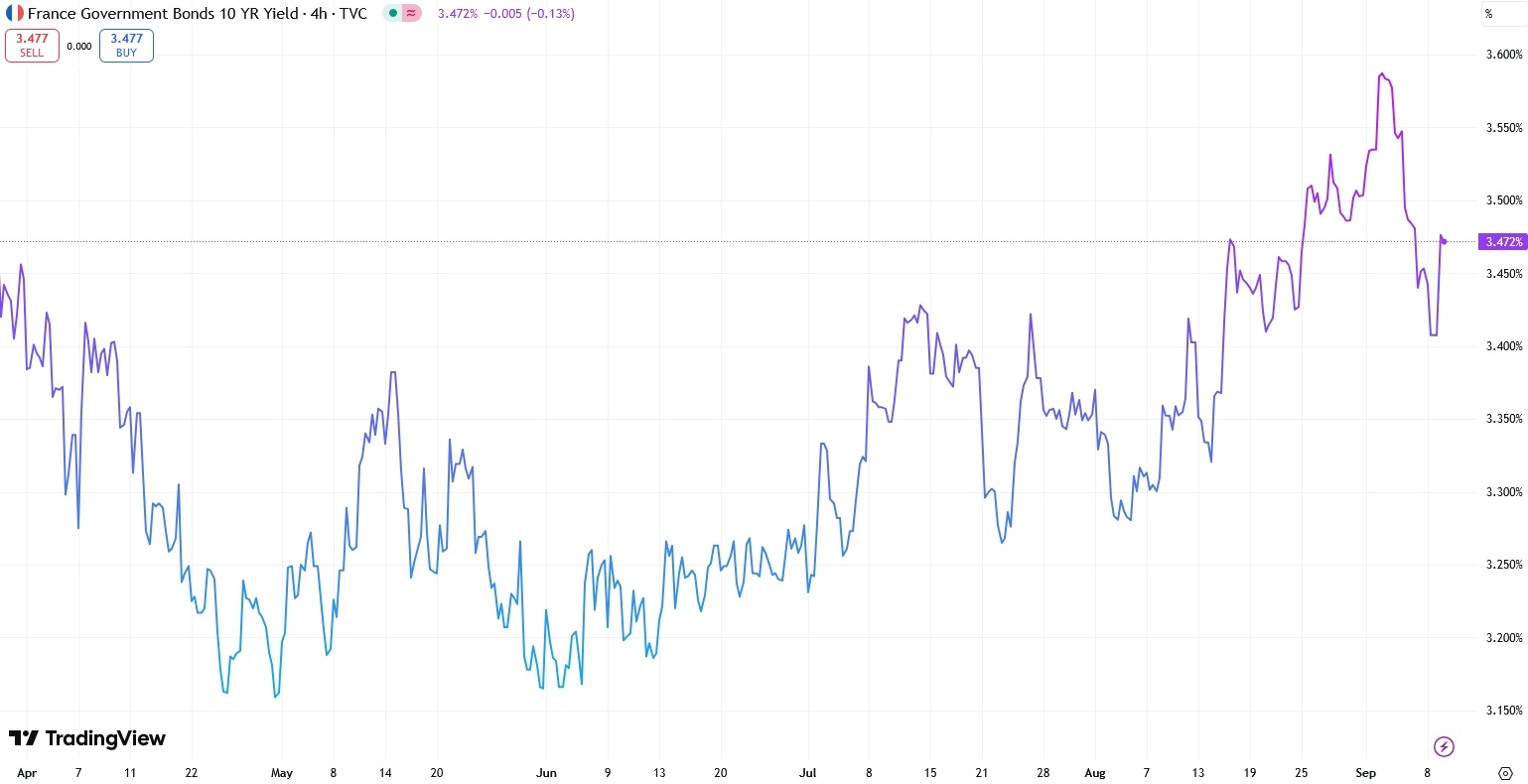Is France the New Italy? Bond Market Selloff Sends Yield Above Greece’s, Fueling Crisis Talk

TradingKey - Five prime ministers in two years, three in one year — this is the current state of French politics. Political uncertainty is undermining the government’s ability to manage its debt burden, pushing the benchmark 10-year French government bond yield above that of Greece and close to Italy.
On September 8, Prime Minister François Bayrou’s government failed to win a confidence vote in the National Assembly, forcing his resignation. This marks the third French Prime Minister to step down within the past 12 months.
Financial markets had already priced in Bayrou’s ouster, and French equities and bonds showed limited reaction after the vote. However, given the prolonged political chaos and lack of policy continuity, investors remain deeply concerned about France’s economic outlook — especially in the face of its mounting public debt.
Tikehau Capital SCA analysts previously noted that a sudden market collapse in France is unlikely, but markets are pricing in a gradual, long-term deterioration.
Bloomberg columnist Lionel Laurent argued that the bigger story is the end of the Macron era. The contradictions of a decade of centrist reform — caught between left and right, forced to appease both extremes — are now fully exposed. With the 2027 presidential election looming, there is still no clear successor in sight.
Laurent wrote:
“Far from the mess of parliamentary politics, the silent burden of a debt pile that constrains investment and a pension system stretched to the limit by the baby-boomer cohort keeps growing.”
Currently, France’s public debt stands at 114% of GDP, ranking third highest in the eurozone, behind only Greece and Italy, the two countries most affected by the eurozone debt crisis. According to Eurostat, France’s debt-to-GDP ratio is projected to rise to 118% by 2026.
Amid political instability, France’s borrowing costs have surged to their highest levels since the eurozone debt crisis. As of writing, the 10-year French government bond yield has climbed to 3.472%, above Greece’s 3.35% and just below Italy’s 3.51%. The Financial Times noted that Greece and Italy have long been viewed as higher-risk borrowers.

10-Year French Government Bond Yield, Source: TradingView
Some asset managers say France is now becoming the “new periphery” — the extra yield investors demand to hold French government debt is becoming the new normal.
Due to expectations that political fragmentation will severely weaken fiscal discipline, Moody’s downgraded France’s sovereign credit rating to Aa3 in December 2024, and S&P Global downgraded its outlook to Negative in February 2025. Fitch Ratings will release its latest review this Friday.
Franklin Templeton described France as the “problem child of the bond market”, expecting continued volatility in French bonds over the next 18 months.
T. Rowe Price warned that France is slowly drifting toward the eurozone’s periphery, unless fiscal policy is adjusted quickly.
However, many strategists note that while President Macron is seeking cross-party consensus to appoint a new prime minister, the current parliamentary structure offers little support for spending cuts. This political deadlock is expected to persist until the 2027 presidential election.







